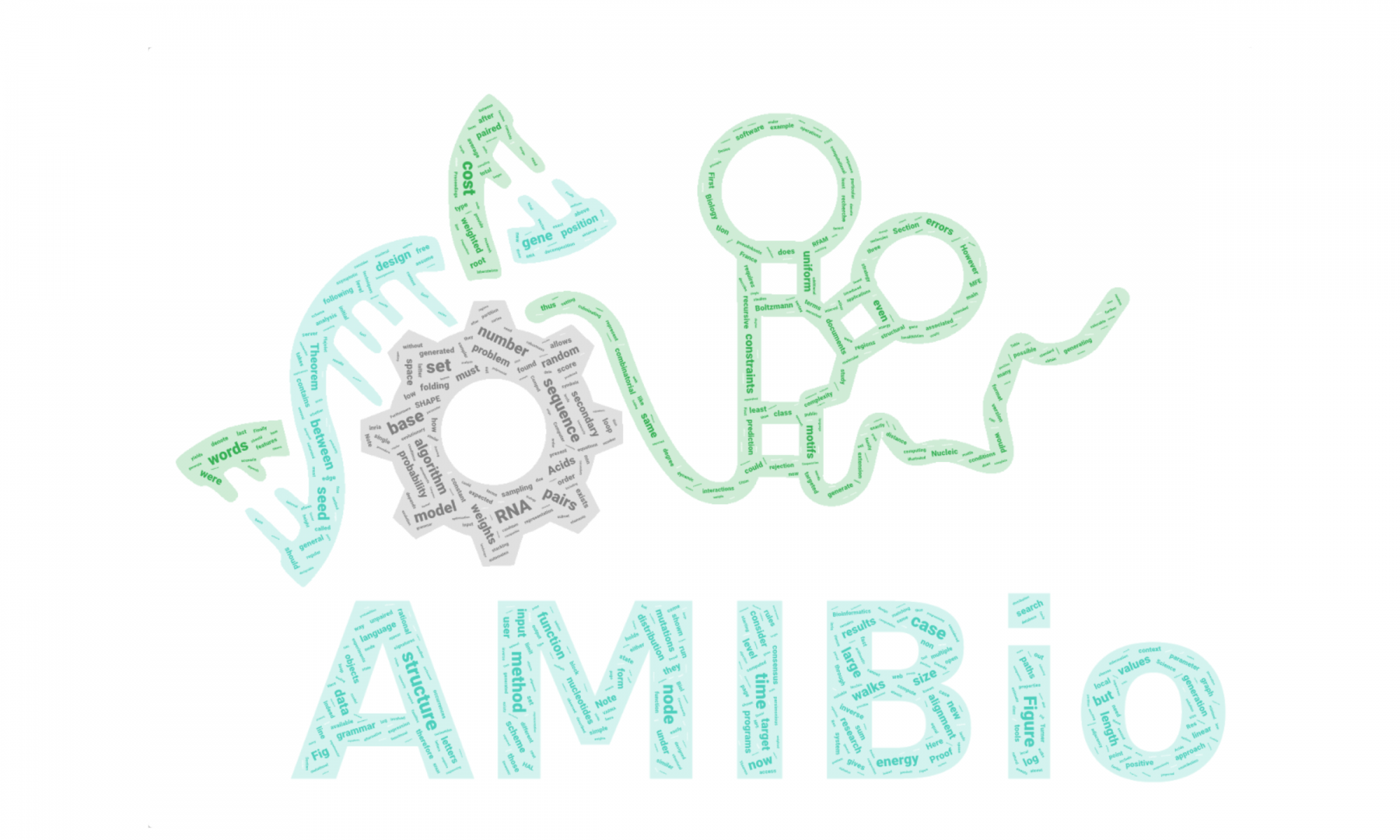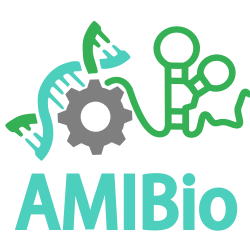Amibio (LIX, Ecole Polytechnique) is a research group in computational biology with a primary interest on the molecular levels of organization in the cell, and a strong focus on RNAs. Starting from the genomic sequences and NGS data, we currently concentrate our efforts on structures, interactions, evolution and design, trying to meet the growing needs for a rational synthetic biology. Towards that goal, we develop methodological approaches, based on abstract models that are computationally tractable and biologically relevant. A common toolkit of computational methods is developed, relying on our strong background in discrete mathematics, algorithmic design and analysis. Our ultimate goal is to provide software tools and platform elements, to formulate and test hypotheses for the sequence/structure/function relationship in molecular biology.


AMIB(io)
Algorithms and Models for Integrative Biology